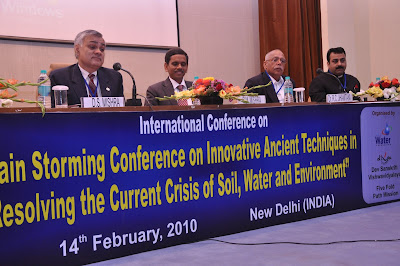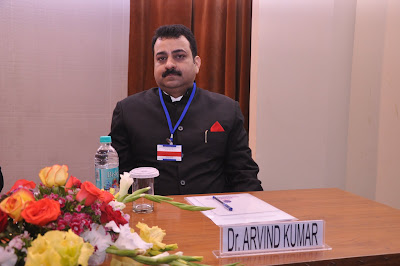A Presentation by India Water Foundation CSR & CIVIL SOCIETY—as a participative and inclusive process Dr. Arvind Kumar
Corporate Social Responsibility (CSR) As a strategic tool for corporate success Organized by VISION CONSULTING In collaboration with Deptt. Of Public Enterprises, Govt of India 26-27th February, 2010 At IIC, Annexe, New Delhi (Address by Special Guest- Mr Arup Roy Choudhury CMD NBCC CHAIRMAN SCOPE, Guest of Honour-Prof. Sharit Bhowmik Professor & Dean TISS Mumbai, Inaugural Address by Chief Guest Mr Bhaskar Chatterjee IAS Secretary DPE GOI, Vote of Thanks Dr. U D Choubey DG SCOPE, Presentation on CSR by DPE & Discussion- MS Stuti Kacker IAS Addl. Secretary, BRPSE DPE, Prof. Ranjan Mohapatra-President VISION Consultant, Mr Ashok B Chakraborty- Group general Manager & Chief CSR ONGC, Arvind Kathuria –ACA Dy. General Manager (Finance), Mr Sudhakar Singh- Chief General Manager BPC Ltd. Mumbai, Mr Pramod Chawla, Mr A Mahapatra- Director (Personnel) MMTC Ltd., Mr Arun Bhan – Managing Director e-Xseed Pvt ltd., Mr N M Prusty Sphere India, etc. present on Ist day.) A Presentatio


